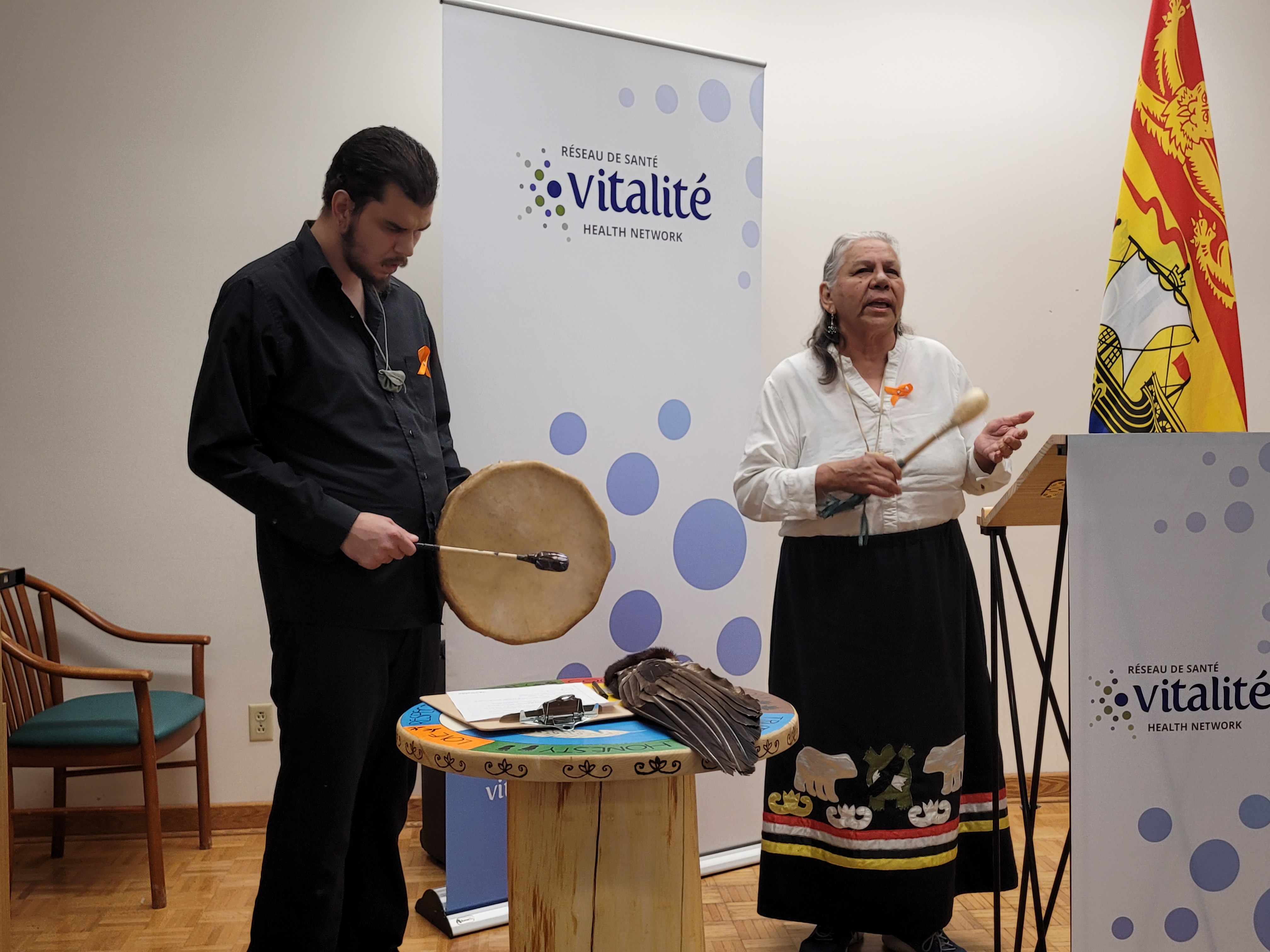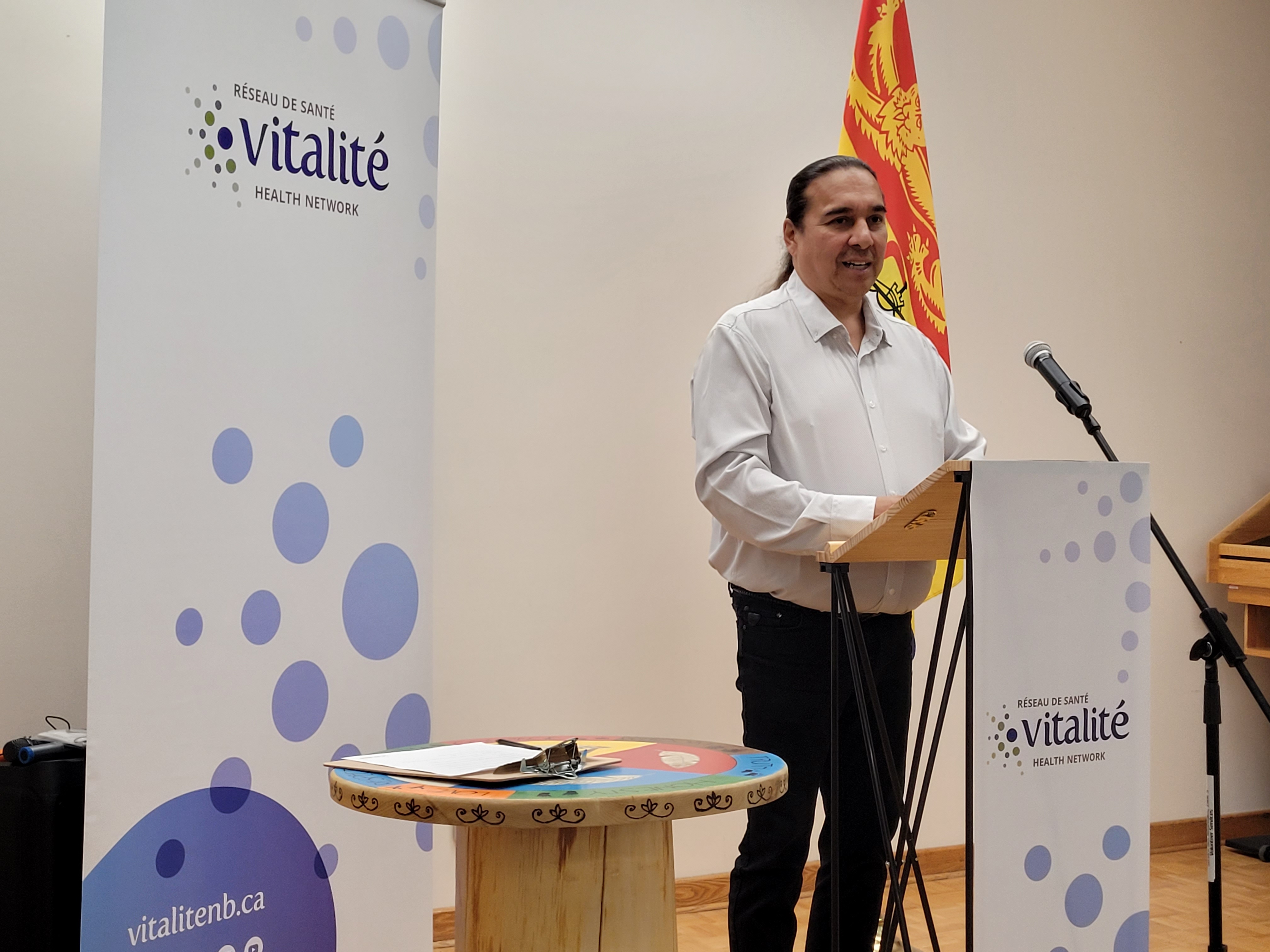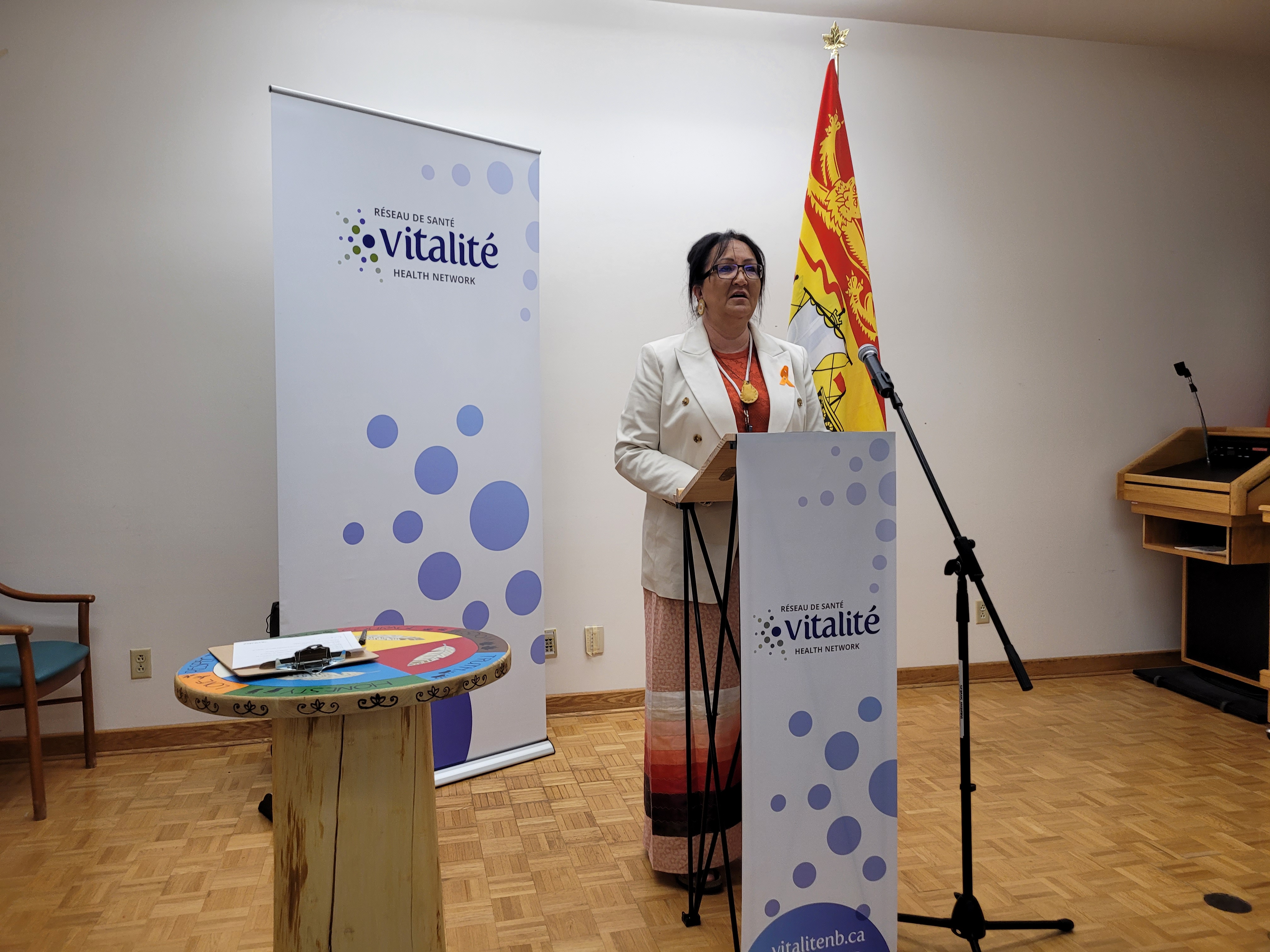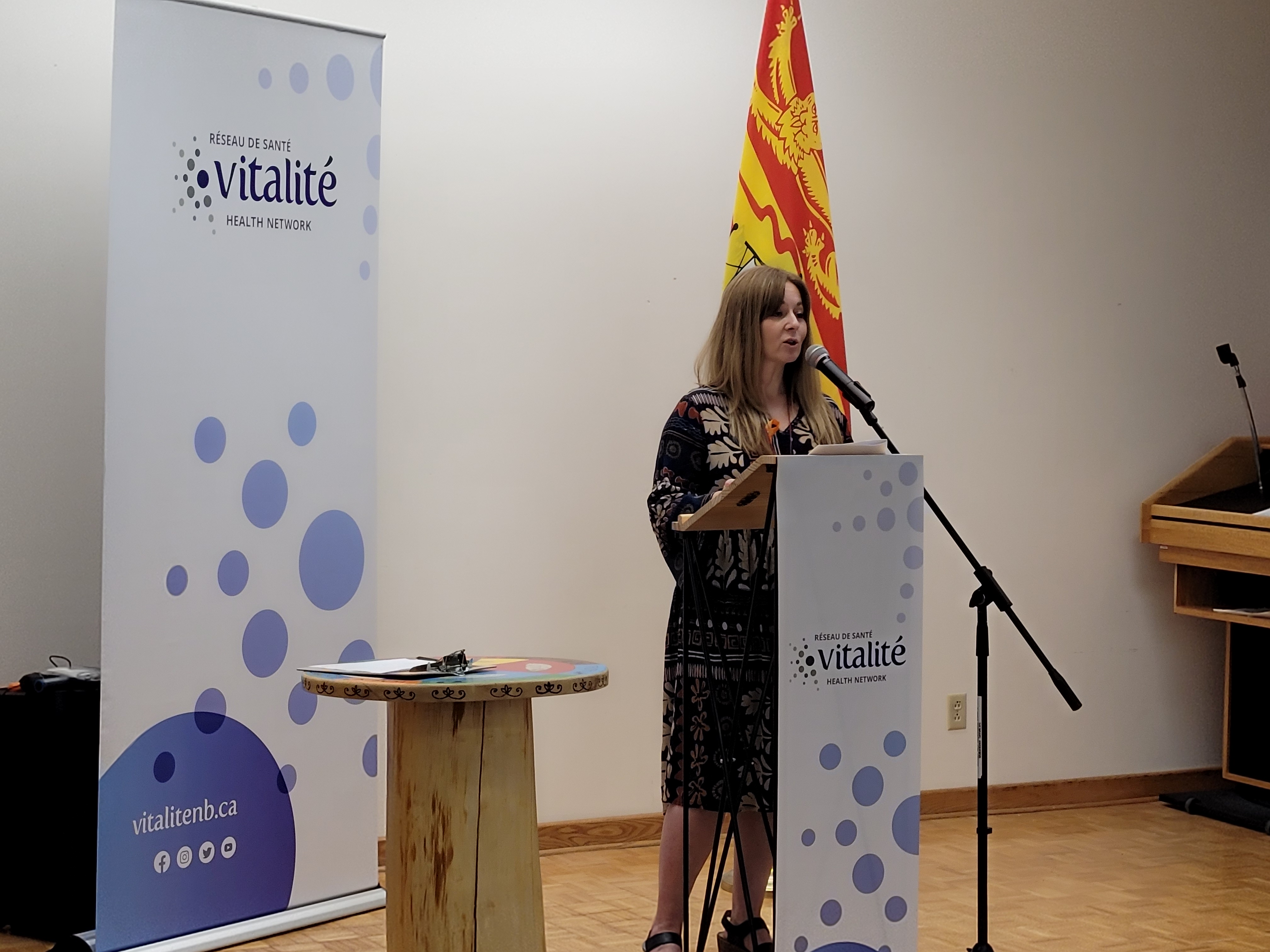Vitalité Health Network celebrates the evolving health partnership established with First Nations communities

Vitalité Health Network marked National Indigenous History Month in the presence of representatives from the First Nations of Listuguj and Ugpi'Ganjig, as well as the Honourable Keith Chiasson, Minister of Indigenous Affairs of New Brunswick.
Among the ceremony's highlights, Chris Wysote, an Elder from the Listuguj First Nation, presented the sweat lodge ritual, which he helped build at the Centre for Hope and Harmony. This sacred place, erected in respect of ancestral teachings, serves as a space for purification, prayer, spiritual healing, and cultural transmission.

The event was also an opportunity to highlight the tangible actions the Network has taken to promote reconciliation and the integration of Indigenous knowledge in care settings.
Two new Indigenous Patient Navigators patients have recently been hired: one in the Restigouche zone, the other in the Beauséjour Zone. These professionals act as resource persons for Indigenous patients and their families, care providers, and, when needed, community members.
Their role is to support patients throughout their care journey, from hospital to community, ensuring that the care provided is culturally safe. They also help patients navigate the health system and raise awareness among hospital staff about the historical and cultural realities of Indigenous Peoples.
"Our government supports the expansion of Indigenous health services at Vitalité Health Network as well as Horizon Health Network to provide an improved health care experience," said Minister of Indigenous Affairs Keith Chiasson, who attended on behalf of Minister of Health John Dornan. "We also remain committed to more collaboration with First Nations on other health-care initiatives to ensure culturally sensitive, safe, trauma-informed, and respectful health-care services for Indigenous peoples. We look forward to continuing to work with Vitalité, Horizon, and Indigenous partners to bridge service gaps."

Vitalité Health Network is guided by the principle of Etuaptmumk, or " Two-Eyed Seeing," an approach that values Indigenous and Western knowledge equally and is based on mutual learning. It enables the integration of traditional healing practices with modern medical approaches in a spirit of respect and complementarity.
Culturally appropriate care spaces have been established to this end. Both the Restigouche Hospital Centre and the Centre for Hope and Harmony offer patients a dedicated space for smudging ceremonies. Sweat lodge ceremonies are also held twice a month, led by Elders or Knowledge Keepers.
In addition, Network staff benefit from ongoing cultural competency training to better understand Indigenous realities, their history, and the specific health issues they face.
"The Network is committed to learning from Indigenous communities and continuing to build bridges so that our care environments respect patients’ cultural traditions throughout their healing journey," said Joanna Martin, First Nations Regional Health Manager at Vitalité Health Network.

The Network has also signed memoranda of understanding with First Nations communities. These agreements aim to establish Mental Wellness Teams, Cancer Care Initiatives, and expand physician services within communities, including family medicine, psychiatry, psychology, and specialized care (such as rheumatology).
For its part, the Centre of Excellence for Fetal Alcohol Spectrum Disorder has continued its collaboration with the province's Elders to ensure that its actions are rooted in traditional knowledge and guided by the cultural realities of communities, as evidenced by the development of the holistic care model called "Dream Catcher" which places the client, family, community and culture at the center of the service circle
 .
.
"We firmly believe that together – with our colleagues, our patients, and our Indigenous partners – we can design care that finds its strength in the harmony between traditional knowledge and contemporary medicine, while improving accessibility," concluded Jenny Toussaint, Vice-President – Clinical Logistics, responsible for Indigenous health issues within the Network.
-30-
Photo captions (in order of publication)
(Group photo)
Front row, left to right
Joanna Martin, First Nations Regional Health Manager
Jenny Toussaint, Vice‑President of Clinical Logistics
Daughter of Chris Wysote
Sébastien Lagacé, Assistant Vice‑President, Mental Health and Addiction Services
Back row, left to right
Hon. Gilles LePage, Minister of Environment and Climate Change
Hon. Keith Chiasson, Minister of Indigenous Affairs
Rosanne Martin, Elder from Listuguj First Nation
James (patient)
Chris Wysote, Councillor Listuguj First Nation and social worker, Centre for Hope and Harmony
(2nd photo)
Rosanne Martin, Elder from Listuguj First Nation, and James (patient)
(3rd photo)
Chris Wysote, Councillor Listuguj First Nation and social worker, Centre for Hope and Harmony
(4th photo)
Joanna Martin, First Nations Regional Health Manager
(5th photo)
Jenny Toussaint, Vice‑President of Clinical Logistics